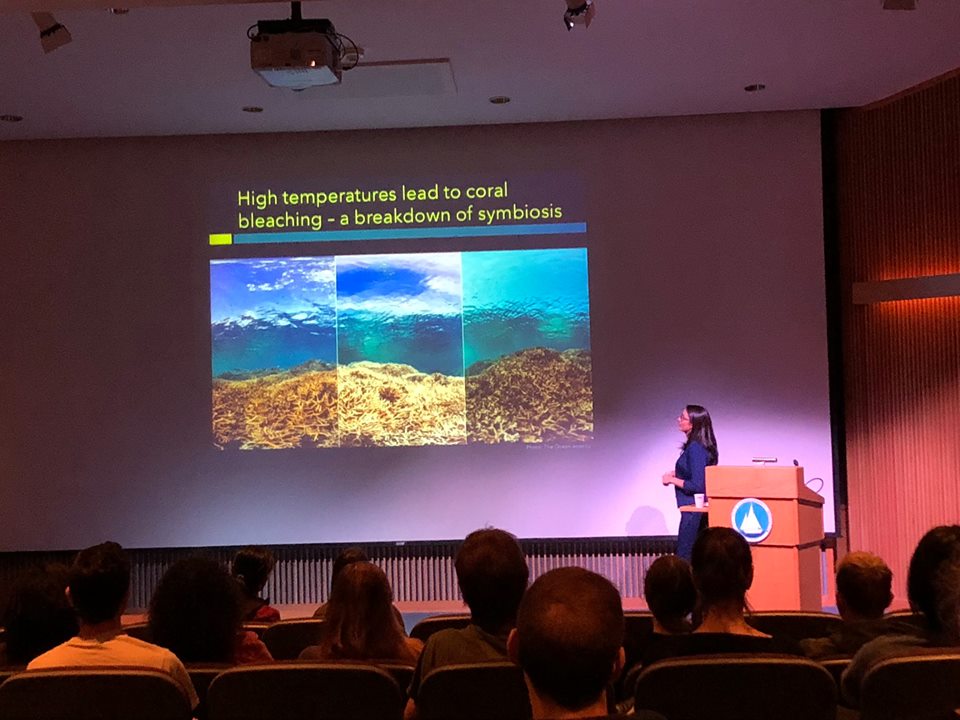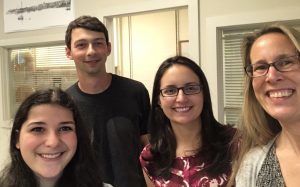Presenting Dr. Hanny Rivera

Thursday was a special day in our lab. Hanny Rivera successfully defended her Ph.D. thesis titled: Genetic connectivity, Adaptation, and Phenotypic Plasticity of Corals and Anemones under Thermal Stress.
Much of Hanny’s work focused on characterizing genetic structure within populations of the massive reef-building coral Porites lobata. In these studies, Hanny collaborated most closely with Anne Cohen and Iliana Baums. To do this work, she trekked across the globe, sampling corals across Palau and the Phoenix Islands. In Palau, she searched for a genetic basis for the high thermal tolerance in the unique “Rock Island” reefs. Hanny has recently described these studies in a popular article in the Oceanus Magazine. Within the Central Pacific, Hanny conducted additional genetic analyses in an effort to understand how corals in the Phoenix Islands survive strong interannual temperature changes associated with the El Nino Southern Oscillation (ENSO).

(pictured from left to right: Hannah Stillman, David Brinkley, Hanny Rivera, Ann Tarrant)
Hanny has also sought to gain insight into thermal tolerance in our favorite “lab rat”, the sea anemone Nematostella vectensis. Nematostella tolerates a huge range of temperatures, with large variation on diel, seasonal, and latitudinal scales. We know that some of variation in thermal tolerance among Nematostella anemones (and most other animals) is genetically controlled (adaptation), and some of it is based on the environment they have experienced (acclimation, or phenotypic plasticity). Hanny conducted an elegant series of experiments showing that newly born anemones inherit thermal tolerance from their parents, both through genetic effects and non-genetic parental effects. These parental effects allow anemone parents to produce offspring that are well-suited for rapidly changing local environments.
Watch for all this work coming out in scientific journals over the next year or so! Hanny has certainly earned a bit of a break, but she has ambitious plans going forward. In January she’ll be starting a postdoc in Sarah Davies’ lab at Boston University. Look to see more great work from Hanny in the near future.